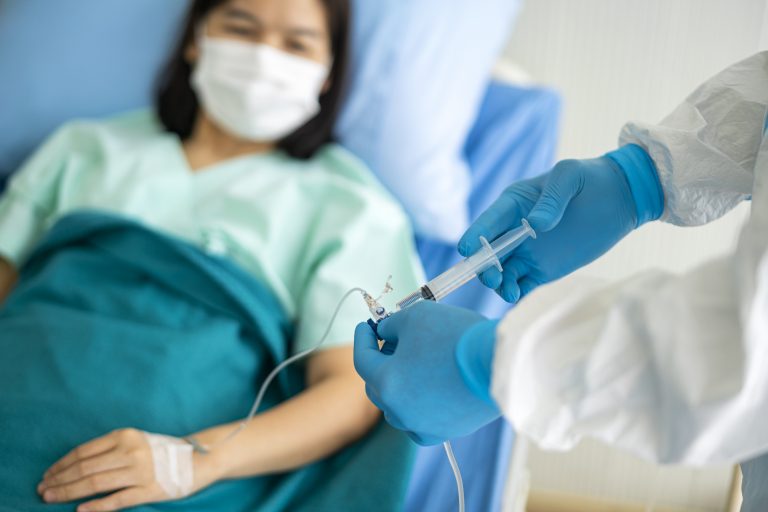
Data from a randomized controlled trial carried out in Brazil suggest that the anti-inflammatory arthritis drug tocilizumab does not benefit severe COVID-19 patients, despite previous findings to the contrary.
The randomized controlled trial, carried out by Viviane Veiga. M.D., from the Beneficência Portuguesa Hospital of São Paulo and colleagues, found that adding tocilizumab to standard care appeared to increase rather than decrease deaths in COVID-19 patients leading to the trial being stopped early.
Many of the adverse effects of severe COVID-19 are due to excessive inflammation in the body in response to infection with SARS-CoV-2. High levels of inflammatory markers such as interleukin (IL)-6 and tumor necrosis factor (TNF)-α on hospital admission are also known to predict worse outcomes for infected patients.
As a result, drugs such as the monoclonal antibody tocilizumab, which targets and reduces IL-6 activity, have been proposed as treatments for patients with severe COVID-19 to try and reduce levels of inflammation and subsequent organ damage.
An as yet un-peer reviewed preprint published earlier this month on the medRxiv server suggests that tocilizumab and another IL-6 antagonist sarilumab have a beneficial effect and modestly but significantly improve survival of COVID-19 patients. Observational studies have also suggested tocilizumab could be beneficial for these patients.
However, the results of the Brazilian study contradict these findings. As reported in the BMJ, Veiga and colleagues recruited 129 patients across 9 hospitals in Brazil during May-July 2020. Patients were enrolled in the study if they had confirmed COVID-19, were receiving supplemental oxygen or mechanical ventilation and had high levels of at least two biomarkers linked to severe disease such as C-reactive protein, D dimer, lactate dehydrogenase, or ferritin.
Half the group were randomly assigned to receive a single infusion of 8 mg/kg tocilizumab in addition to standard care and the other half received standard care alone.
The trial was stopped at 15 days, as 11 patients (17%) had died in the tocilizumab group versus 2 (3%) in the standard care group, all from COVID-19 related acute respiratory failure or multiple organ dysfunction. Adverse events were also higher in the tocilizumab group compared with controls at 43% versus 34%.
The patients in the study were followed up again at 28 days and there were no significant additional differences in mortality between the groups at this point. Patients given tocilizumab who survived also had a shorter hospital stay than those given standard care.
Patients in the tocilizumab group actually had higher levels of IL-6 after treatment than the standard care group, something that is also observed in some rheumatoid arthritis patients given the drug. Levels of other inflammatory markers such as TNF-α, did not appear to be affected.
“In rheumatoid arthritis, despite an increase in IL-6 levels, inflammatory markers and clinical manifestations improve. Thus, the increase in serum IL-6 might represent an inhibition of IL-6 receptor mediated clearance and continued disease activity,” write the authors.
“The lack of statistically significant changes in serum IL-2, IL-4, and TNF-α levels in [COVID-19] patients receiving tocilizumab possibly indicates that this treatment intervention did not interfere with the core events in SARS-CoV-2 infection, but rather is restricted to the modulation of downstream effects of IL-6,” they suggest.
The researchers acknowledge that there were some limitations to this study, such as the relatively small number of patients included. But the results remained significant after accounting for factors such as the amount of respiratory support needed by the participants on admission to hospital.
“These results raise questions about an anti-inflammatory approach in the treatment of COVID-19 beyond corticosteroids, which might also have an immune modulation role,” they conclude.













